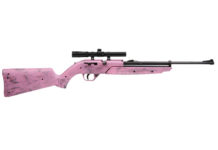In northern Alaska, where grizzly bear and polar bear ranges overlap, polar bears are significantly larger than grizzly bears. Male grizzly bears in northern Alaska have an average mass of 460 lbs (210 kg), whereas polar bears have an average mass of 800 lbs (400 kg).
So, on the basis of size alone, polar bears should kick a grizzly bear’s butt. So what’s going on here? There a couple of hypotheses to explain these unexpected results.
Hypothesis: Grizzly Bears are More Aggressive
One hypothesis for why grizzly bears win in a battle against grizzly bears is simply that they are meaner and more willing to fight than a polar bear.
Grizzly bears have a reputation for being “vicious” predators, and are known to be more aggressive than other bear species. Throughout their evolution, large Pleistocene predators such as wolves, large cats, and other bears[5] resulted in natural selection for aggression in grizzly bears[6].
Grizzly bears are also omnivorous (i.e., they eat both plant and animals) and may be more likely to defend an energetically-rich food source compared to the lower quality food items that generally make up their diet.
Conversely, polar bears have access to energy rich prey most of the year and don’t usually have to worry about competing with other polar bears for it. During the late summer when they’re at the site of the whale remains, they generally are not aggressive to each other.
Further, because they primarily hunt on the sea ice, polar bears did not have to compete with the Pleistocene predators that grizzly bears evolved with.
This is not to say they are never aggressive towards one another, but probably less frequently than grizzly bears. Some of the scars I’ve seen on polar bears show that they were involved in some big fights. But it’s usually males competing with each other for access to mates.
Hypothesis: Grizzly Bears are Packing on the Pounds
Another hypothesis, and one that I think has a lot of support, is that grizzly bears are more willing to take risks fighting polar bears in autumn because they are trying to gain sufficient energy for their upcoming hibernation.
Polar bears don’t hibernate, and during late summer (when they most often interact with grizzly bears) they attempt to minimize their energy expenditures. Polar bears typically pack on their pounds in the spring when ringed seals (their primary prey; Phoca hispida) are most available.
It is likely more important for polar bears to avoid conflict and burning energy fighting grizzly bears because they know they have to wait another month or two for the sea ice to return. A grizzly bear really doesn’t have too much to lose. They need as much stored energy as possible to survive a long winter hibernation.






![Air gun 101: The differences between .177 & .22 – Which jobs they do best ? [Infographic]](https://airgunmaniac.com/wp-content/uploads/2020/09/g44-218x150.jpg)








































